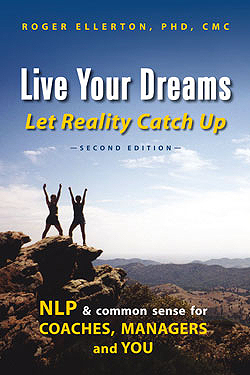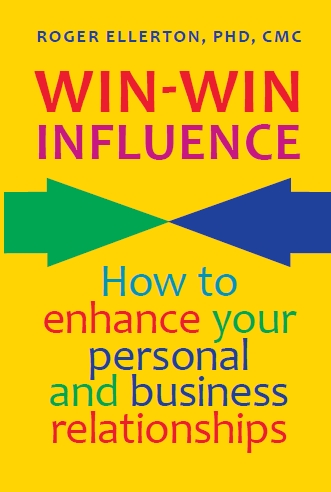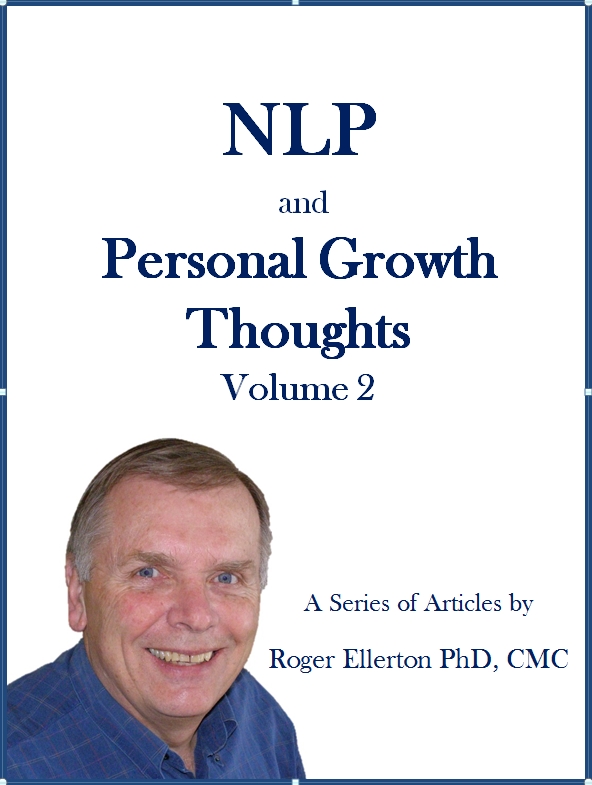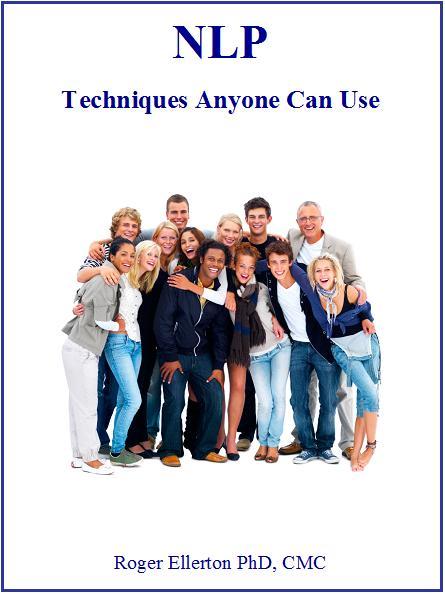Small Words That Can Make a Difference
By Roger Ellerton Phd, ISP, CMC, Renewal Technologies Inc.
This article may not be republished without written permission from Roger Ellerton/Renewal Technologies Inc. If you republish this article without permission, you will be in violation of copyright law and sent an invoice. You may share this and other pages with your friends by linking directly to this page from your website or blog.
Although small, there are words that can hold you back from accomplishing what you desire or create an illusion of progress when there is none. You probably use or hear others using these words on a daily if not hourly basis. Be aware of them and realize the impact they have on how you live your life. As a parent, realize how these words may shape what your children see as possible.
You may know of other words that make a difference in your communication with yourself or others and here are my favourites.
But
You have just finished sharing an idea with a colleague and the first word out of her mouth is "but ..." or "Yes, but ..." What's your reaction? Do you think she was actually listening? Do you feel your idea has been rejected? Now assume she said 'and' instead of 'but'. Does this feel different? Do you have a sense she was listening and is now building on your idea? The word 'but' has the potential to diminish or kill whatever idea, thought or experience immediately precedes it. "I have lots of skills, but I don't have a university degree." Far too often we use 'but' when 'and' is a better choice. Begin to notice where in your conversation you can enhance your communication with yourself and others by using 'and' in place of 'but'.
Try
How often do you hear or say, "I'll try."? And what does this mean? Sometimes the word 'try' is used to mean "I really don't want to do what you have asked, and I don't know how to say no to you.", or "I don't have sufficient confidence in myself to make a full commitment to getting this done.", or "I don't know what I really want in life."
When I hear people express their dreams or outcomes with the word try, I usually ask myself, "How serious is this person about achieving their dreams?" "What messages are they sending to their unconscious mind?" I see this as having one foot on the playing field and the other foot in the stands and hoping to score a touchdown. Highly unlikely! Trying is a waste of energy.
How would your life change, if instead of saying, "I will try to do ..." you say "I will do ..." or even better "I am in the process of doing ..." and specify a time when it will be done.
Hope to, Want to
These are similar to 'trying' to do something. The idea of accomplishing something is there and with 'hope to' or 'want to' there is no commitment or visible action to getting it done.
If you are really serious about it, why not say, "I am committed to accomplishing this by (date or time)" and then focus your actions on doing so.
Should
Are you one of those people who has a list of things they 'should' do and rarely accomplishes any of the items on your list? Think back five years and notice how your life - career, relationship with your children, parents or spouse, health - would be different today, if you had actually accomplished some of the items on that 'should' list, rather than letting them wither and fall away. If you are a parent, recall all of the great 'shoulds' you thought of doing for/with your children. Great ideas that would have made a significant difference that your children never got to experience with you. Or what about the 'shoulds' you thought about with regard to your parents and now you do not have the opportunity to carry them out. Or think of today's 'should' list. How will your life be different later today, next week, next year or five years from now if you were to identify a few critical items on your 'should' list and actually do them?
This is not about trying to accomplish these critical tasks. This is about making a clear commitment to carrying them out to the best of your abilities and available resources. That is, identify a small critical subset of must do activities, each with a clearly defined outcome and timeframe that you will honour.
Can't
'Can't' is used far too often and shuts out the possibility of doing/achieving something. Saying, "I can't do math." closes down any possibility of doing math. If instead, you say, "I haven't yet found a way to do math.", this leaves the door open to finding a solution and puts you on a path of discovery.
Instead of saying what you can't do, what would happen and how would you feel if you talked about what you can do? "I can add, subtract, multiply and divide and I haven't yet found a way to do algebra." This small change can have a significant effect on your attitude and how you feel about the task before you and your creativity.
Author: Roger Ellerton is a certified NLP trainer, certified management consultant and the founder and managing partner of Renewal Technologies. The above article is based on his book Live Your Dreams Let Reality Catch Up: NLP and Common Sense for Coaches, Managers and You.
Copyright © 2007, Renewal Technologies Inc. All rights reserved.








